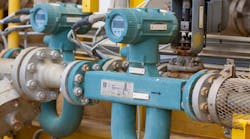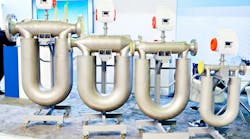The U.S. Environmental Protection Agency (www.epa.gov) is raising the 2008 renewable fuels standard (RFS), which determines how much nonpetroleum fuel will power vehicles in the United States, to 7.76 percent. The move is in response to the Energy Independence and Security Act (EISA), which President Bush signed in December, upping the minimum level for renewable fuels blending from 5.4 billion gallons to 9.0 billion gallons.
Last November, the EPA announced a standard of 4.66 percent to meet the 5.4 billion gallons mark, but the agency has determined that an increase to 7.76 percent is required to hit the 9.0 billion gallons goal.
The EISA increases the overall volume of renewable fuels that must be blended each year, reaching 36 billion gallons in 2022. To achieve these volumes, EPA annually calculates the percentage-based standard, which applies to refiners, importers, and non-oxygenate blenders of gasoline.
Based on the standard, each of these parties determines the minimum volume of renewable fuel that it must use. The RFS program creates new markets for farm products, increases energy security, and promotes the development of advanced technologies that would expand the production of renewable fuels.
For more information, visit www.epa.gov/otaq/renewablefuels/.

